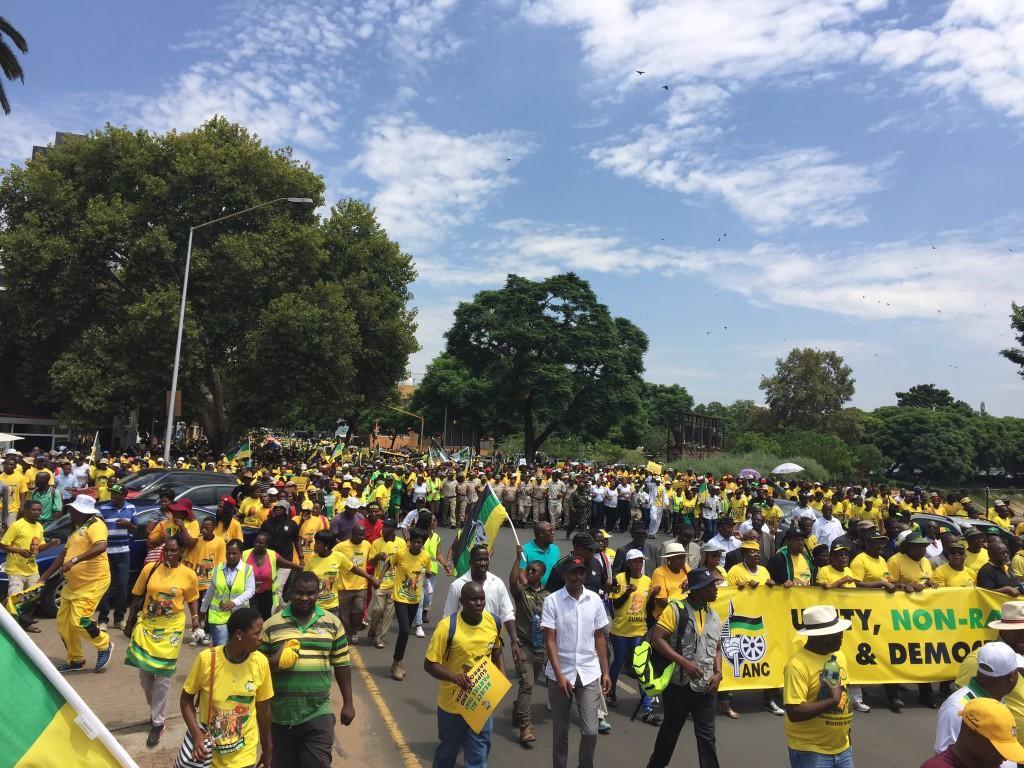Africa-Press – South-Africa. Political parties are increasingly becoming involved in workplace issues, and employers must make sure that they approach the correct court if they want to interdict the reach of these parties in their workplace.
According to Cliffe Dekker Hofmeyr’s Imraan Mahomed, failure to approach the correct court can have disastrous effects, with courts not considering areas where it does not have jurisdiction.
This is what occurred in CCI South Africa (Pty) Ltd v ANCYL and Others in March of this year.
CCI’s management sought an interdict after they came across a leaflet bearing the African Nation Congress Youth League (ANCYL) logo, as well as Facebook and WhatsApp posts, demanding CCI be shut down due to employment-related issues, including low salaries, unfair dismissal and ill-treatment.
CCI obtained an interim interdict in February 2022 from the Labour Court.
However, later that month, CCI was notified of a second proposed march to its premises.
The ANCYL got permission to march on the offices under the Regulation of Gatherings Act 205 of 1993 (RGA). The march was publicised through a number of channels, such as newspaper articles, posters, and flyers, with a call for public participation.
The CCI sought an interdict stating that the ANCYL was in breach of the Labour Relations Act of 1995 as it was not a registered union.
The ANCYL objected to the jurisdiction of the Labour Court, arguing that the march was not a strike or protest action as employees continued to work.
The Labour Court said that it lacked jurisdiction, and the decision was upheld on appeal by the Appeal Court for several reasons:
“The absence of an employment relationship between CCI and the ANCYL.
The authorisation of the march under the RGA.
The lack of CCI employees seeking assistance from the ANCYL (which is very different from the other cases)
The absence of involvement from a trade union.
The court acknowledged that the almost exclusive focus on labour issues did not inherently categorise the march as a matter governed by employment laws.
The court affirmed that under section 17 of the Constitution, individuals can protest against labour right violations as long as it is conducted lawfully under the RGA. However, if such protests involve employees and their unions, they must adhere to the provisions of employment law. The court again endorsed its earlier decision in ADT Security (Pty) Ltd v National Security And Unqualified Workers Union (NSUWU) and Others [2015] 36 ILJ 152 (LAC) to highlight that protests authorised under the RGA can be interdicted by the Labour Court where they are circumventing the provisions of employment law.
If the protest falls within the scope of employment law, an interdict is to be sought from the Labour Court. If not, the RGA applies and only the High Court would have jurisdiction to interdict.”
What to do
The Labour Appeal Court accepted the principle that political parties can assist in employment matters in an advisory capacity, meaning there is no blank objection to political parties showing up.
“If the matters are squarely employment law related and the political party is representing the interests of workers, the audience of the Labour Court may be sought,” said Mahomed.
“Where it is not a clear employment law matter and there is no authorisation under the RGA, the audience of the High Court will need to be engaged.”
source:businesstech
For More News And Analysis About South-Africa Follow Africa-Press






